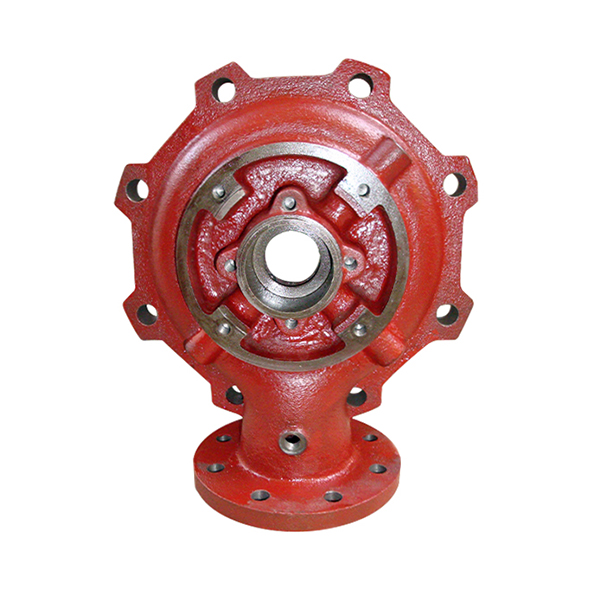Mobile:+86-311-808-126-83
Email:info@ydcastings.com
Jul . 12, 2024 09:23
Back to list
Car engine oil pan replacement what you need to know before getting started
The car oil pan is an essential component of your vehicle's engine system. It serves as a reservoir for the engine oil, which is vital for lubricating various components of the engine and ensuring smooth and efficient operation. Without a properly functioning oil pan, your car's engine could suffer from severe damage and potentially break down.
The oil pan is typically located at the bottom of the engine and is attached directly to the engine block. It is designed to collect and store the engine oil when the car is not in operation or when the engine is turned off. When the engine is running, the oil pump will draw oil from the pan and distribute it to the various moving parts of the engine, such as the pistons, bearings, and camshafts.
One of the most important functions of the oil pan is to help regulate the temperature of the engine oil. The oil pan acts as a heat sink, absorbing heat from the engine oil and dissipating it into the surrounding air. This helps prevent the oil from overheating and breaking down, which can cause serious damage to the engine.
In addition to storing and cooling the engine oil, the oil pan also serves as a filter for any debris or contaminants that may be present in the oil. Over time, dirt, metal shavings, and other particles can accumulate in the oil pan. If not removed, these contaminants can circulate through the engine and cause damage to the internal components

car oil pan. Regular oil changes are necessary to ensure that the oil pan remains clean and free of debris. The oil pan is typically made of steel or aluminum, which are both strong and durable materials that can withstand the high temperatures and pressures present in the engine. However, over time, the oil pan can become damaged or corroded due to exposure to road salt, moisture, and other environmental factors. If the oil pan develops a leak or crack, it can result in a loss of oil pressure, which can lead to engine failure. If you notice any signs of a damaged oil pan, such as oil spots or puddles on the ground beneath your car, it is important to have it inspected and repaired as soon as possible. Ignoring a leaking oil pan can lead to serious engine damage and costly repairs down the line. A qualified mechanic can inspect the oil pan for any leaks or damage and recommend the best course of action to ensure the continued smooth operation of your vehicle. In conclusion, the car oil pan plays a crucial role in maintaining the health and performance of your vehicle's engine. By ensuring that the oil pan is in good condition and free of leaks, you can help prevent costly repairs and keep your car running smoothly for years to come. Regular maintenance and inspections are key to ensuring that your oil pan is functioning properly and protecting your engine from harm.

car oil pan. Regular oil changes are necessary to ensure that the oil pan remains clean and free of debris. The oil pan is typically made of steel or aluminum, which are both strong and durable materials that can withstand the high temperatures and pressures present in the engine. However, over time, the oil pan can become damaged or corroded due to exposure to road salt, moisture, and other environmental factors. If the oil pan develops a leak or crack, it can result in a loss of oil pressure, which can lead to engine failure. If you notice any signs of a damaged oil pan, such as oil spots or puddles on the ground beneath your car, it is important to have it inspected and repaired as soon as possible. Ignoring a leaking oil pan can lead to serious engine damage and costly repairs down the line. A qualified mechanic can inspect the oil pan for any leaks or damage and recommend the best course of action to ensure the continued smooth operation of your vehicle. In conclusion, the car oil pan plays a crucial role in maintaining the health and performance of your vehicle's engine. By ensuring that the oil pan is in good condition and free of leaks, you can help prevent costly repairs and keep your car running smoothly for years to come. Regular maintenance and inspections are key to ensuring that your oil pan is functioning properly and protecting your engine from harm.
Latest news
-
Why Should You Invest in Superior Pump Castings for Your Equipment?NewsJun.09,2025
-
Unlock Performance Potential with Stainless Impellers and Aluminum End CapsNewsJun.09,2025
-
Revolutionize Your Machinery with Superior Cast Iron and Aluminum ComponentsNewsJun.09,2025
-
Revolutionize Fluid Dynamics with Premium Pump ComponentsNewsJun.09,2025
-
Optimizing Industrial Systems with Essential Valve ComponentsNewsJun.09,2025
-
Elevate Grid Efficiency with High-Precision Power CastingsNewsJun.09,2025
Related PRODUCTS











